In the field of nutrition, the "one size fits all" approach is becoming increasingly obsolete, and for good reason. Our deeper understanding of genetics, metabolism, and lifestyle factors has revealed the simple truth that each person's nutritional needs are unique. As a result, this knowledge has changed how we think about diet and health, giving rise to personalized nutrition.
Unlike generic dietary advice, personalized nutrition tailors nutrition recommendations based on a person's genetics, lab values, lifestyle, and health goals. As this innovative approach gains momentum, dietitians are taking note.
Let’s explore how personalized nutrition can enhance your ability to provide effective guidance and the various tools you can use to make your clients' health journey more successful.
What is Personalized Nutrition?
Personalized nutrition is an innovative approach to dietary advice that recognizes the inherent uniqueness of each person's biology, genetics, lifestyle, and dietary preferences.
Unlike traditional one-size-fits-all dietary recommendations, personalized nutrition tailors dietary advice and meal planning to meet the specific needs of each individual. This knowledge allows you to create a personalized meal plan for your clients based on various factors, including genetic makeup, lab testing, metabolism, food sensitivities, and health goals.
Through advanced technologies like genetic testing and sophisticated data analysis, you can now identify a person’s specific nutritional requirements, allowing for precise recommendations regarding macronutrient intake, micronutrient needs, meal planning, and even optimal meal timings.
By understanding how your client’s body responds to different foods, you can help optimize their health outcomes, promote increased energy levels, and potentially prevent or manage chronic diseases.
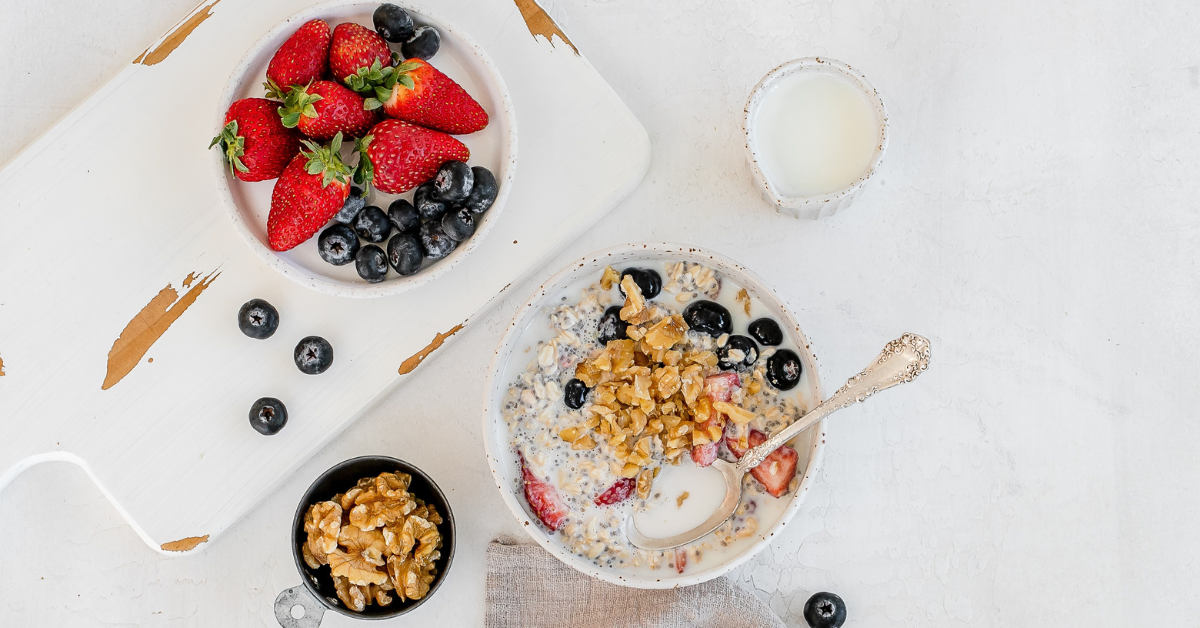
How to Apply Personalized Nutrition as a Dietitian
You can use various tools to help navigate the world of personalized nutrition. These tools encompass a wide range of resources, from advanced genetic testing kits to comprehensive nutrition assessments.
Additionally, meal planners with databases of recipes can help you create a customized experience for your clients, ensuring that dietary changes are not only beneficial but also enjoyable.
Personalized Nutrition Tools for Dietitians
The following are personalized nutrition tools allowing you to create individualized recommendations and dietary plans tailored to your clients’ needs and preferences.
Lab Testing
Genomics testing
Genomics testing is at the forefront of personalized nutrition, offering a glimpse into your client’s unique genetic makeup. By partnering with companies like The DNA Company or Genetic Direction, you can analyze genetic information related to nutrient metabolism, dietary sensitivities, and even optimal exercise routines.
Understanding this information will allow you to create personalized meal plans and supplement recommendations that align with your clients' genetic profiles, helping to improve health outcomes.
Micronutrient testing
Micronutrient deficiencies can have a significant impact on overall health. SpectraCell's micronutrient testing provides a comprehensive analysis of your client's nutritional status, which can show deficiencies in vitamins, minerals, and antioxidants.
With this knowledge, you can design detailed supplementation and dietary strategies, addressing specific deficiencies and promoting optimal nutrient balance.
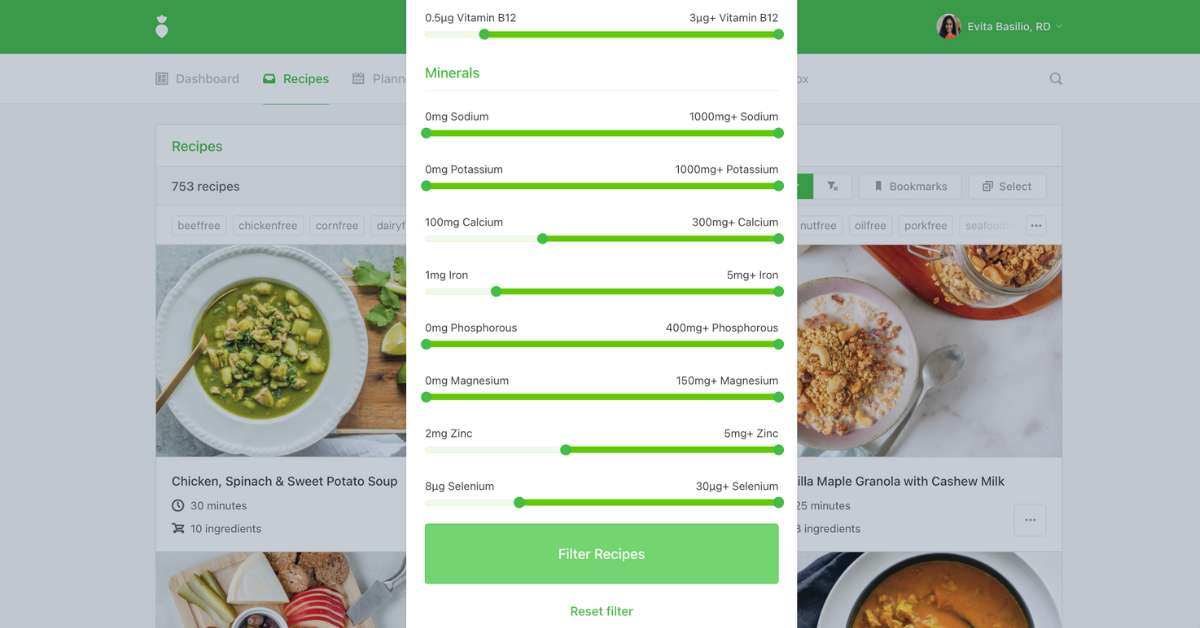
Fatty acid analysis
Fatty acids play an important role in cardiovascular health, brain function, and inflammation regulation. OmegaQuant's fatty acid analysis enables you to assess the balance of omega-3 and omega-6 fatty acids for your clients.
This analysis allows you to recommend dietary adjustments, helping your clients find the right balance of fatty acids for improved heart health and overall well-being.
Gut health
The gut microbiome is a key player in digestion, immune function, and overall health. The GI Map test can identify imbalances in gut flora, pathogens, and markers of inflammation.
Understanding your client’s unique gut microbiome will allow you to develop a personalized meal plan that incorporates probiotics, prebiotics, and gut-friendly foods to help restore balance.
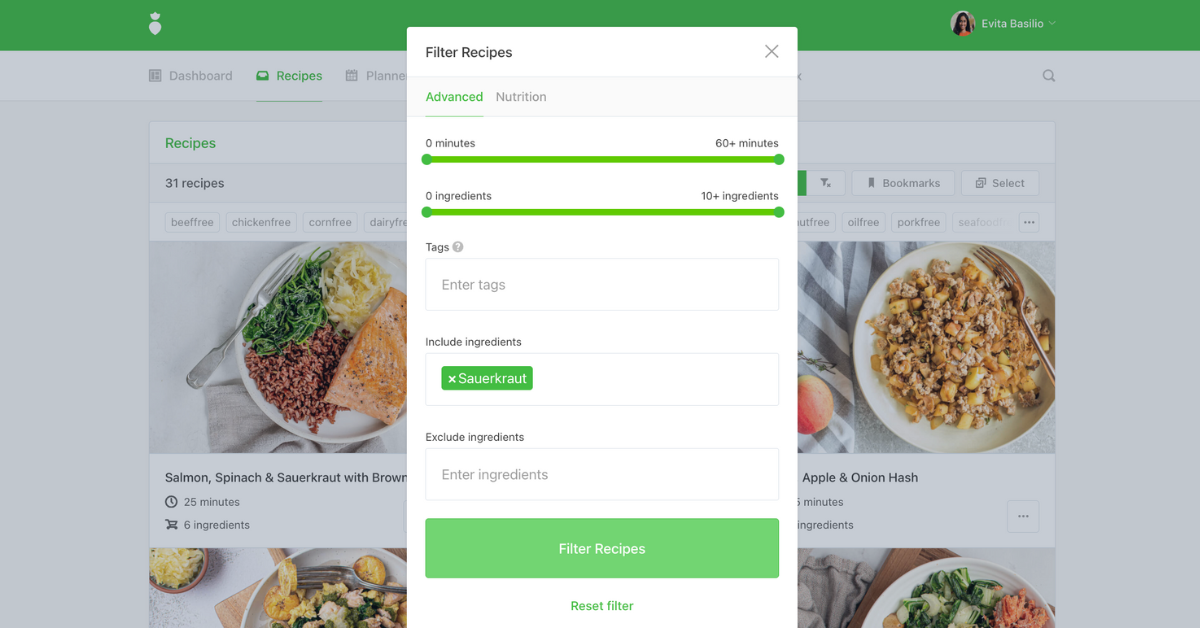
Hormone testing
Hormonal imbalances can affect metabolism, energy levels, and overall vitality. The DUTCH test (Dried Urine Test for Comprehensive Hormones) provides a comprehensive analysis of hormonal levels, including cortisol, estrogen, progesterone, and testosterone.
By understanding these hormonal patterns, you can create a personalized meal plan that supports hormonal balance, optimizing energy levels and setting your clients up for success.
Organic acids
Organic acid testing offers insights into cellular metabolism and energy production. The Organix Comprehensive test identifies markers related to nutrient deficiencies, oxidative stress, and detoxification pathways.
Having a deeper understanding of your clients’ metabolism can help you develop targeted dietary strategies, incorporating specific nutrients and antioxidants to support cellular health and enhance their energy levels.
Food sensitivities
Food sensitivities can contribute to a range of health issues, from digestive discomfort to chronic inflammation. The MRT test (Mediator Release Test) detects food sensitivities by measuring inflammatory responses to various foods and chemicals.
You can use this information to design personalized elimination diets, remove problematic foods, and promote a more balanced diet tailored to meet your client’s unique needs.
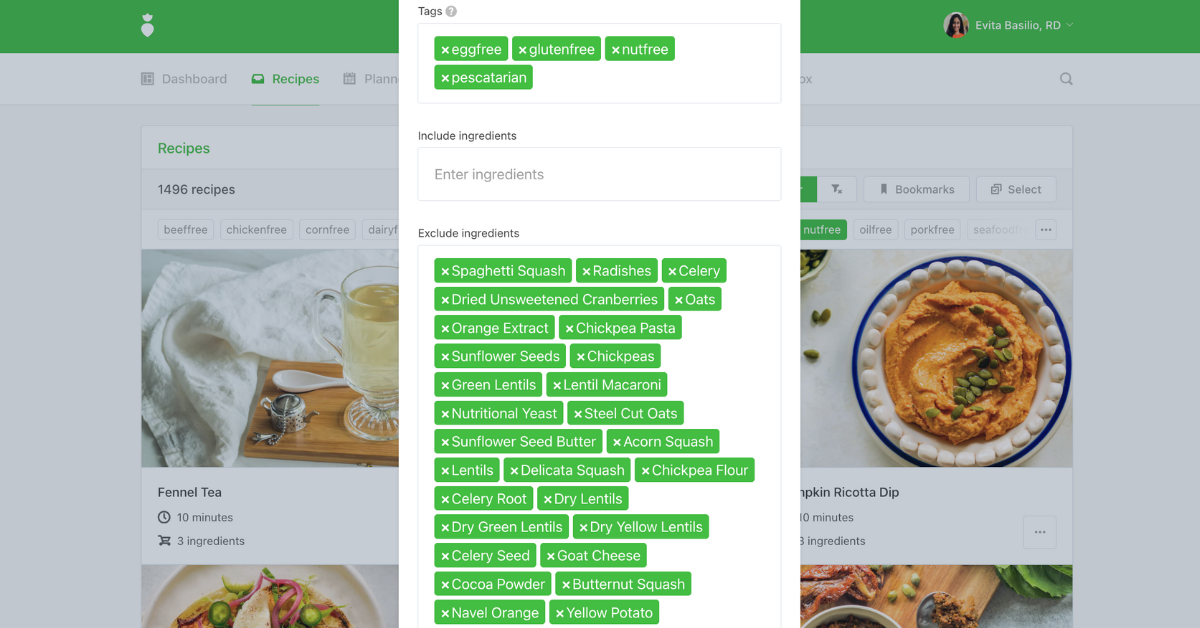
If you’re looking to incorporate functional labs into your practice, you can collaborate with lab companies or distributors like Evexia Diagnostics and Rupa Health. Learn more about how to create meal plans based on your client’s unique genetic makeup here!
Nutrition Planning Assessment
Including a nutrition assessment planning tool in your practice can help your ability to implement personalized nutrition more effectively. Assessment tools can streamline gathering important information about a client's lifestyle, eating habits, preferences, and health goals.
For example, in your assessment, you'll want to ask important open-ended questions like, "What do you hope to achieve through working with me?" Also, include more specific questions such as, "How many meals per week do you eat out?" A great assessment will also inquire about meal planning by asking questions like, "How much time would you ideally want to spend in the kitchen per day?"
This Nutrition Planning Assessment Tool can help you gather quality data to create personalized meal plans to help your clients achieve their health goals.
Meal Planning Tool: That Clean Life
Clients love meal plans, but dietitians don’t necessarily love creating them. Meet That Clean Life, the best meal planning tool for dietitians that streamlines the process, making it efficient, personalized, and stress-free.
This meal planning software enables you to take personalized nutrition to the next level by effortlessly creating individualized meal plans that you and your clients will love.
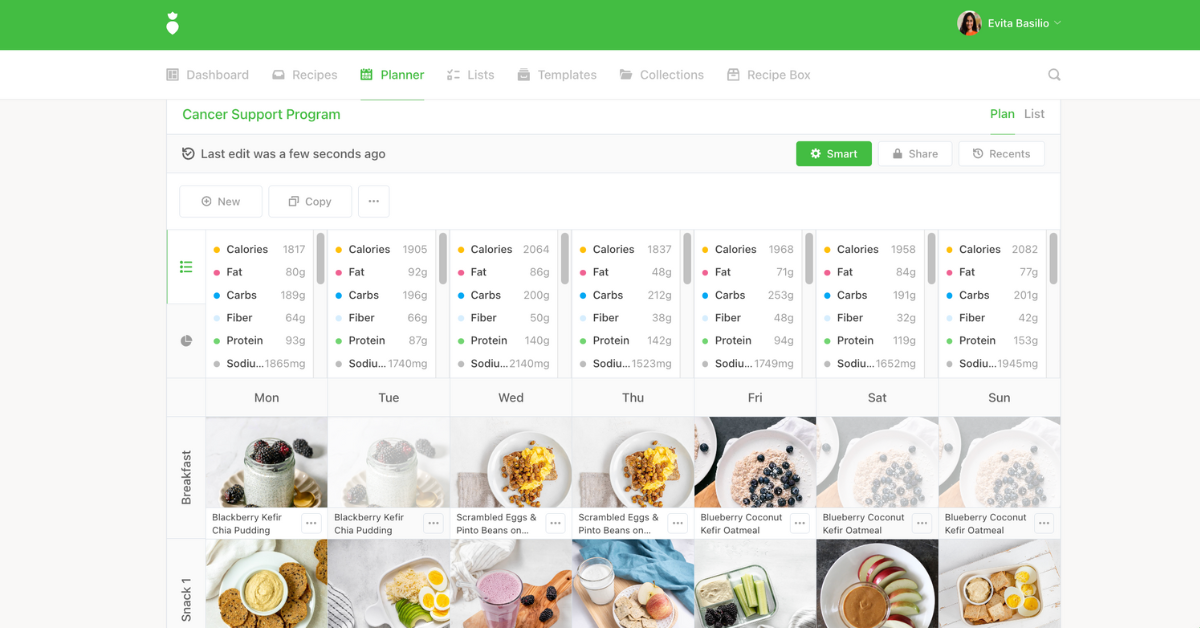
With an extensive database of recipes, customizable meal plans, and a user-friendly interface, That Clean Life simplifies the process of designing personalized meal plans. Its flexibility allows you to easily adapt meal plans based on your clients' unique genetic makeup, lab results, nutrition planning assessment, micronutrient needs, gut health, and other personalized parameters.
For example, based on their gut health testing, you may have a client that has imbalances in their gut microbiome. As a result, they may need to incorporate more gut-friendly foods into their diet. That Clean Life’s nutrition filters can be used to choose meals higher in gut-health nutrients like prebiotics, probiotics, and fiber.
The platform not only saves valuable time for you but also enhances your ability to engage with clients. For example, you can provide any recipe or meal plan through a unique link that allows your client into the software for a fun and interactive experience.
Learn more about creating personalized meal plans based on your client’s functional lab tests here.
Practice Management Software: Practice Better
Dietitians are increasingly turning to advanced practice management software like Practice Better to enhance their approach to personalized nutrition.
This innovative software offers a variety of features that not only simplify administrative tasks but also improve the delivery of personalized meal plans.
Here's how Practice Better, with its key features, is transforming the way dietitians engage with their clients:
Protocols
Practice Better allows you to create personalized protocols based on individual client needs. Whether it's designing specific meal plans for micronutrient deficiencies or gut health concerns, dietitians can customize protocols that address their clients' unique requirements.
These protocols are easy to follow and easily accessible from anywhere with the convenient app.
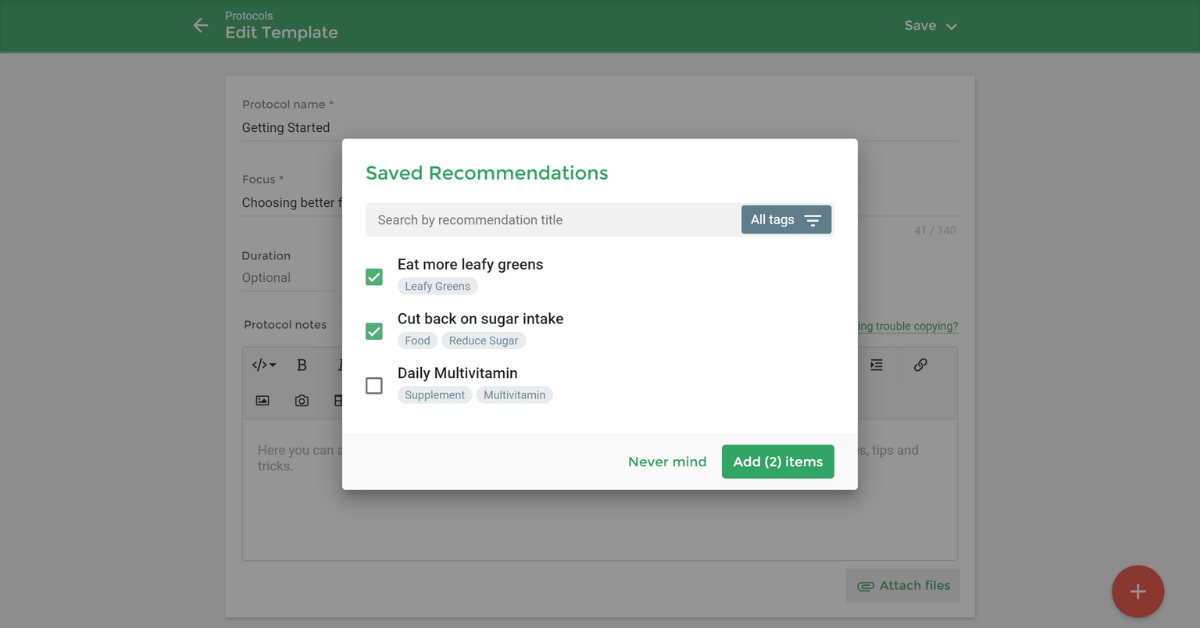
Client Portal
The client portal feature acts as a centralized hub where clients can access their personalized meal plans, documents, and resources. This HIPAA-compliant platform also allows for seamless communication between you and your clients.
By having all relevant information in one place, clients will feel more engaged and motivated to follow your guidance.
Telehealth
Practice Better's integrated telehealth feature enables new and existing clients to easily book and attend sessions online.
Through virtual appointments, you can connect with clients from anywhere, ensuring convenient access to personalized nutrition while developing a stronger client-dietitian relationship.
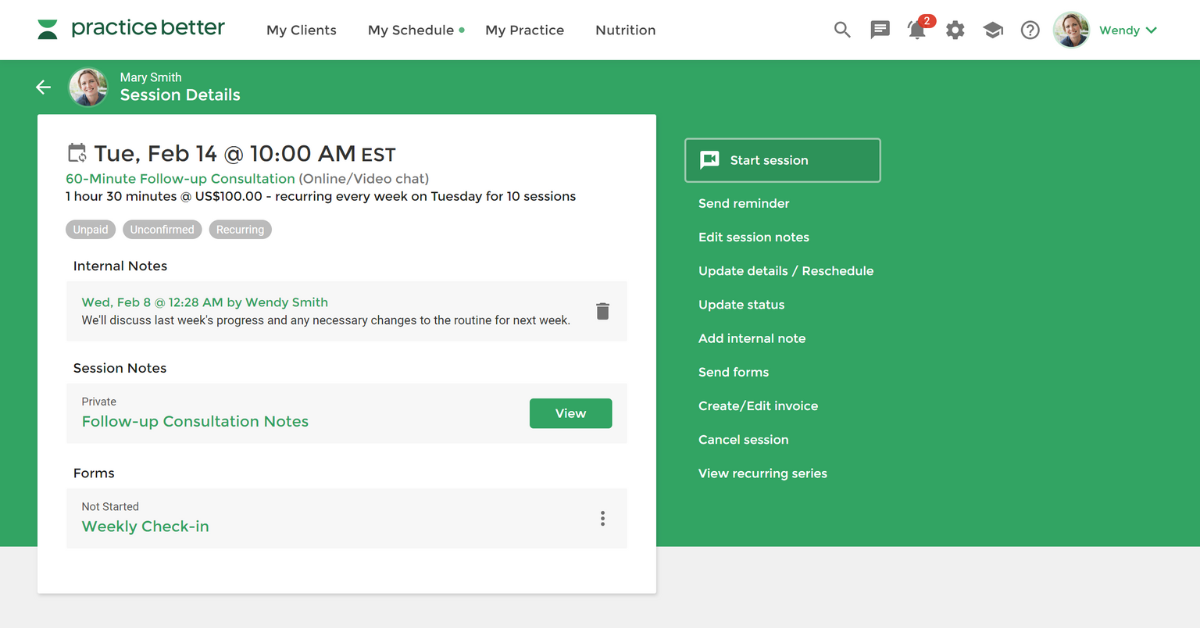
Messaging
Clear and efficient communication is important for building successful client relationships. Practice Better's messaging feature enables secure and timely communication between dietitians and clients.
Clients can easily ask questions, share concerns, and provide updates on their progress, allowing dietitians to offer immediate guidance and support.
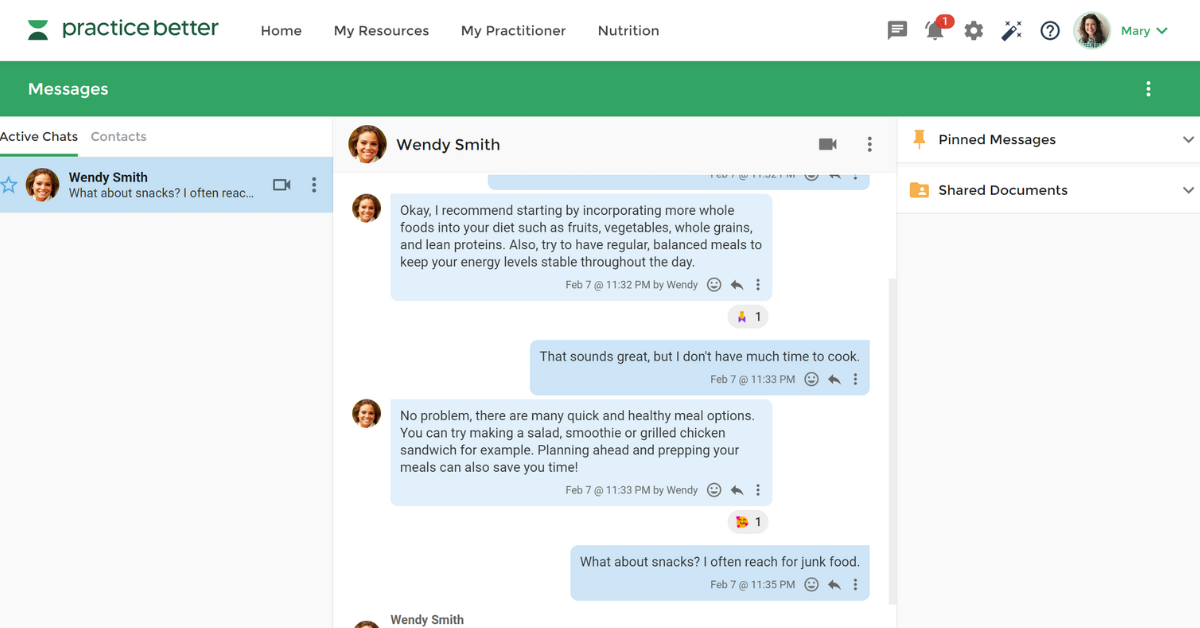
Food & Mood Journal
Understanding the connection between food choices and emotional well-being is an important part of personalized nutrition. Practice Better's Food & Mood Journal allows clients to log their daily food intake, including location, hunger levels, and mood.
This valuable data can help you identify patterns, track progress, and make data-driven adjustments to personalized meal plans. This information also allows you to offer tailored advice that not only promotes physical health but also contributes to your clients' emotional well-being.
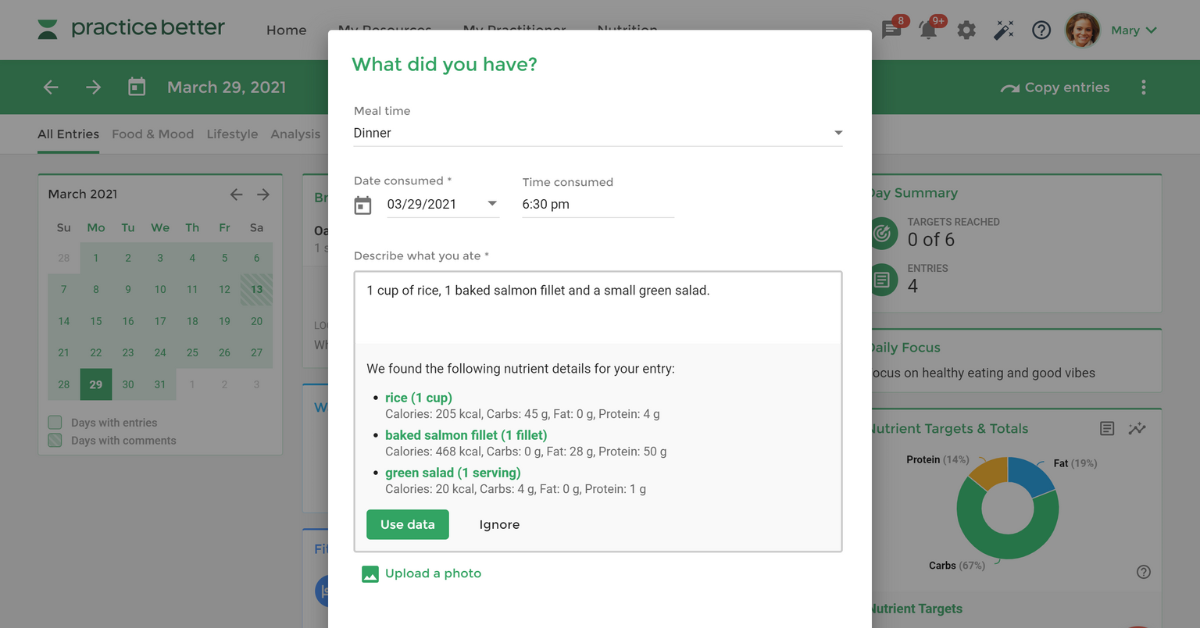
Key Takeaway
Personalized nutrition represents an important shift in our approach to health and wellness. By understanding the unique genetic, metabolic, and lifestyle factors of each client, you can offer tailored recommendations that optimize health outcomes and foster long-term, sustainable changes.
From genetic testing to meal planning software, there are a variety of tools you can use to help you deliver personalized nutrition to your clients. This innovative approach can not only enhance your ability to provide effective guidance, but it also supports a future where dietary recommendations are as unique as the people you serve.
That Clean Life can help you offer personalized nutrition at scale. Check out a demo to see how That Clean Life can help you create beautiful nutrition plans for your clients today.

